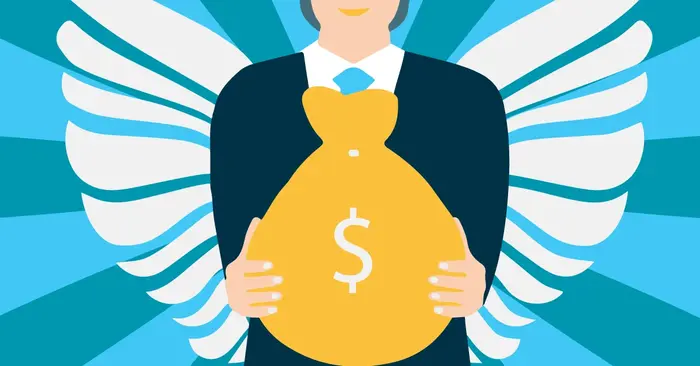Archives
What Matters More at the Earliest of Early Stages? Team? or Idea?

I have attended over 45 hackathons in the last year. Some as a mentor, some as a participant and most as a judge. There are many biases I have, including a “developer bias” – I prefer developer heavy teams to MBA teams or sales teams etc. I know some of these biases and many I am not aware of.
So, it is always fascinating when I get a chance to meet the individuals first before they form teams and then see them selling their ideas to get quality hackers, hustlers (presenters, more than sales guys are needed for a hackathon) and hipsters (designers) on board.
I have been doing an experiment to help me understand how to evaluate teams and ideas better.
The experiment is fairly simple. On a white sheet of paper, I put the names of 5 people I think are the likely to win at the beginning of the hackathon. This may be based on just a 2-3 minute conversation with them. I dont know what goes in my mind, but I want to document it. I think I judge how they introduce themselves, what the first few words are, the background and education, etc.
I think I have the same judgment biases as most investors and entrepreneurs have, so it is very likely that the top 10 on my list will be the same as any of the other folks who are judging or mentoring. I have shared these notes and the top 10 list with other mentors and asked them to share theirs as well.
Then when the ideas are being pitched I write down the top 5 ideas. I am sure many biases are being played in my mind again. I generally dislike the education and ideas aimed at solving problems that college students have, for example looking for mentors or finding internships. I am very partial to solutions aimed at developers or marketing audiences.
Usually at the end of this process I have my top 5 or 6. The reason is that I have found that in 4 out of 10 cases the “good person” on the list does not choose a “good idea” or the “good idea” has some “average teams”.
I have tried to then map my initial “picks” against those that win the hackathon eventually. In the 11 hackathons that I have consistently done this over the last 2 months, there has been only 1 case when a team from the “other list” has won the hackathon. In 6 of the remaining 10, my first pick has gone on to win and in the remaining 4, my first pick has made it either to 2nd or 3rd place.
I thought I was doing pretty good. Over the last 5 hacakthons I have let other judges and mentors in on this experiment and asked them to rate before and after so they can get their before and after picks.
Turns out most of the judges were in the same ballpark. So, my entire basis for being able to judge good teams was as good or as bad as other judges. There is no proprietary information to leverage since the meetings and information exchanges are so short.
The second part of the question is what mattered more – a good team or a good idea – this is only to win the hackathon.
Turns out good ideas win more hackathons than good teams in 5 of my 11 cases. I have insufficient information to find out how many of the good ideas will eventually turn out to be good startups, given how nascent some of the ideas and teams were.
What I also think is that even if I took someone reasonably tech savvy regardless of experience, they would have a similar “wining picks” ratio.
This also calls into question the “experience” judges and mentors have gathered over the years and the exposure they have to all other competing ideas and companies. Turns out all that experience is possibly useful at certain other things, but at the earliest of early stages, it does not require a rocket scientist to figure out who wins the hackathon, within a low margin of error.
What do you think? Or am I taking limited data and generalizing to a trend?
Archives
Creating Artificial Constraints as a Means to Innovation

Many of the entrepreneurs I know have created new innovative startups thanks to real constraints they had. For example, I was hearing AirBnB’s Brian Chesky, on the Corner Office podcast and he mentioned that when he and his cofounder were trying to get some money to get started and the only way to keep afloat was to “rent” their air bed they had in their room. That, then led to Air Bed and Breakfast, which is now AirBnB.
This was a real constraint they had – no money to “eat” so they had to make it happen somehow.
I have heard of many stories of innovation where in the protagonists had real constraints of either financial, technology, supply, demand, economic, social or any number of other characteristics.
The interesting story that I have also recently heard of how Facebook has “pivoted” from being a desktop offering to getting a significant part of their revenue from mobile is how they were given the arbitrary constraint of only accessing Facebook via the mobile phone.
So there are ways that you can create “artificial” constraints to force innovation to happen.
Most larger companies and some smaller ones as well, have to constantly find ways to create artificial constraints – to find a way to innovate and be more be a pioneer.
While some constraints are good – lack of funds at the early stage for example and lack of resources, there are entrepreneurs that are stymied by these constraints and those that will find a way to seek a path to go forward.
I think this is a great way for you to think about innovating in a new space. If you have constraints, find a way to use it to your advantage.
Archives
The Great Mobile App Migration of March 2020

Over the last few weeks as many in the world have been in lockdown, there has been a temporary “mobile app migration” happening. There are new apps downloaded and they replaced existing apps on the “home screen”.
While some of these apps are likely temporary use, for e.g. I have 6 “conferencing apps” – Zoom, Uber Conference, Webex, Google Hangouts, Blue Jeans and Goto Meeting. That is because of the many people I have conference calls with – each company seems to have chosen a different web conference solution.
Other apps seem like they will have staying power – Houseparty, for e.g. which has games, networking and video conferencing all built into one app to keep in touch with friends and relatives.

The apps that have moved away from my “home” screen, which I expect will come back once the crisis will be behind us include – Uber, Lyft and all the airline apps from Delta, Alaska and United.
Archives
Perseverance with the Ability to Pivot on Data: 21 Traits We Look for in Entrepreneurs

There are 5 key inflection points I have noticed which makes founders question their startup, to either make a call to continue working on their startup, pivot to a new problem or quit their startup altogether.
It is at these points that you really get to know the startup founder and their hunger and drive to be successful. I don’t think I can characterize those that choose to quit as “losers” or “quitters” because of many extraneous circumstances, but there is a lot of value that most investors see in entrepreneurs who face an uphill part of their journey to come out on the other side more confident and stronger.
These five inflection points are:
- When you have to get the first customers to use and pay for the product you have built after you have “shipped” an alpha / beta / first version. Entrepreneurs quit because they have not found the product-market-fit – because the customer don’t care about the product, there is no market need, or the product is really poorly built, or a host of other reasons.
- When you have to start to raise the first external round of financing from people you are not familiar with at all. Entrepreneurs quit because while it is hard to get customers and hire people, it is much more harder to get a smaller set of investors to part with their money, if you do not have “traction”, or “the right management team” or a “killer product”.
- When you have to push to break even (financially) and sustain the company to path of being self sufficient. Entrepreneurs quit at this stage because they have now the ability to do multiple things at the same time – grow revenues and manage costs, and many of them like to do one but realize it is hard to do that without affecting the other. So, rather than feel stuck they decide to quit.
- When you have to scale and grow faster that the competition – which might mean to hire faster, to get more customers, to drive more sales, or to completely rethink their problem statement and devise new ways to grow faster. Entrepreneurs quit at this point because they are consumed by the magnitude of the problem. They overassess the impact the competition will have on their company, give them too much credit or focus way too much on the competitors, thereby driving their company to the ground.
- At any point in the journey, when the founders lose the passion, vision or the drive to succeed. Entrepreneurs quit a these points because they have challenges with their co founder, they don’t agree with the direction they have to take, or encounter the “grass is greener on the other side” syndrome.
While I have observed many entrepreneurs at these stages at discrete points in time, I have also had the opportunity to observe some entrepreneurs in the continuum, and I am going to give you my observations on 3 of the many folks I have known, who, have quit.
One went back to college to finish his MBA after getting a running business to a point of near breakeven, another found the business much harder than he originally thought he would and got a job at a larger company and the third was just unable to have the drive to go past 11 “no’s”‘ from angel investors.
Over the last 8 years, if I look at my deeper interactions with over 90 entrepreneurs, who I would have spent at least 100+ hours each, I would say that of the 24 people that are not longer in their startup, the one thing that stands out among the ones that persevere is that it is not “passion” or “vision” at all.
It is the inherent belief that they are solving a problem that they believe is their “calling”. They also don’t believe that there is any other problem that’s worth solving as much, even though there may be easier ways to make money.
So most of my questions of entrepreneurs to test whether they will pivot or quit are around why they want to solve this problem (which I am looking to see if they know enough about in the first place) versus any other one.
The answer to that question is the best indicator I have found to be the difference between the pivots, the leavers and the rest.
-

 Business3 hours ago
Business3 hours agoWhat I Learned in My First Month of Running a Startup Accelerator
-

 Business2 weeks ago
Business2 weeks ago5 Profitable Digital Business Ideas, Increase Your Income!
-

 Archives3 months ago
Archives3 months agoHow Can You Tell If An Angel Investor Is “real” Or “fake”?
-

 Business1 month ago
Business1 month agoIndividually Proficient, Collectively Efficient; Why Your First Hire Matters
-

 Business7 years ago
Business7 years ago6 Affordable Co Working Space around the Globe
-

 Politics4 weeks ago
Politics4 weeks agoPrediction of Global Economy in 2024, Indonesia The First ASEAN Country Most Confident to Create This Program
-

 Business7 years ago
Business7 years ago6 How to Make a Business Presentation More Relatable
-

 Archives4 weeks ago
Archives4 weeks agoHow Accelerators Make Money To Manage Operating Costs

